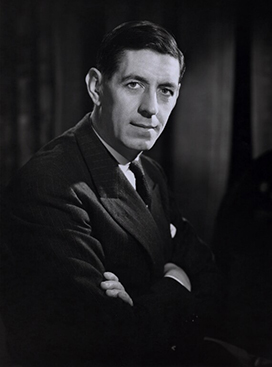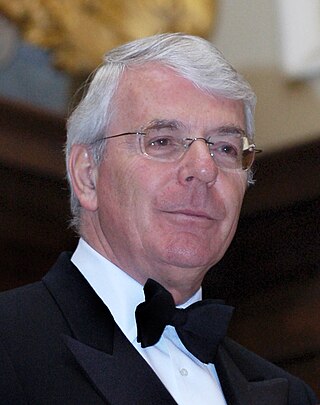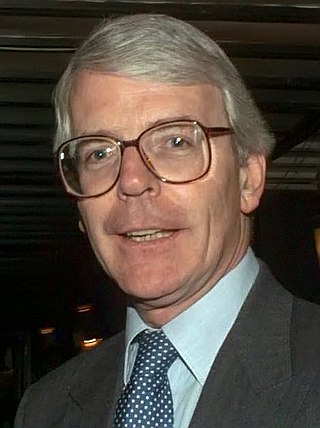Related Research Articles

Henry Paul Guinness Channon, Baron Kelvedon, was Conservative MP for Southend West for 38 years, from 1959 until 1997. He served in various ministerial offices, and was a Cabinet minister for 3½ years, as President of the Board of Trade and Secretary of State for Trade and Industry from January 1986 to June 1987, and then as Secretary of State for Transport to July 1989.

The Royal African Company (RAC) was an English trading company established in 1660 by the House of Stuart and City of London merchants to trade along the West African coast. It was overseen by the Duke of York, the brother of Charles II of England; the RAC was founded after Charles II ascended to the English throne in the 1660 Stuart Restoration, and he granted it a monopoly on all English trade with Africa. While the company's original purpose was to trade for gold in the Gambia River, as Prince Rupert of the Rhine had identified gold deposits in the region during the Interregnum, the RAC quickly began trading in slaves, who became its largest commodity.

Sir Arthur Antony Duff was a senior British diplomat and Director General of MI5.

Sir Edward Dillon Lott du Cann was a British politician and businessman. He was a member of Parliament (MP) from 1956 to 1987 and served as Chairman of the Conservative Party from 1965 to 1967 and as chairman of the party's 1922 Committee from 1972 to 1984.
The Electricity Council was a governmental body set up in 1958 to oversee the electricity supply industry in England and Wales.
Patrick Edmund Pery, 6th Earl of Limerick KBE, AM, DL, was an Irish peer, banker and public servant.
Kari Gjesteby is a Norwegian politician for the Labour Party. She has never been a member of the Norwegian Parliament, but has been State Secretary for three tenures, as well as Minister of Trade and Shipping from February to October 1981 and Minister of Justice and the Police from 1990 to 1992. After her political career she has been a director in the Bank of Norway, director of the National Library of Norway and the Norwegian Library of Talking Books and Braille and, from 2009 to 2013, the first female State Conciliator of Norway.

Sir Henry Frederick Ross Catherwood was a British politician and writer.
The Earl of Sefton Stakes is a Group 3 flat horse race in Great Britain open to horses aged four years or older. It is run over a distance of 1 mile and 1 furlong (1,811 metres) on the Rowley Mile at Newmarket in mid-April.
Sir Ronald Gordon Jackson was an Australian businessman.

Margaret Thatcher was Prime Minister of the United Kingdom from 4 May 1979 to 28 November 1990, during which time she led a Conservative majority government. She was the first woman to hold that office. During her premiership, Thatcher moved to liberalise the British economy through deregulation, privatisation, and the promotion of entrepreneurialism.

Wensley Ivan William Frederick Pithey was a South African character actor who had a long stage and film career in Britain.

The 1992 Dissolution Honours List was gazetted on 5 June 1992 following the advice of the Prime Minister, John Major.

The 1997 Dissolution Honours List was gazetted on 18 April 1997 following the advice of the outgoing Prime Minister, John Major. The only honours in this list were 21 life peerages.

The 1987 Dissolution Honours List was gazetted on 30 July 1987 following the advice of the Prime Minister, Margaret Thatcher.
References
- ↑ "Records of the British Overseas Trade Board | The National Archives". Discovery.nationalarchives.gov.uk. Retrieved 28 May 2014.
- ↑ 'The Penguin Dictionary of Economics' George Bannock, R. E. Baxter and Evan Davis. 5th Edition. Penguin Books 1992.